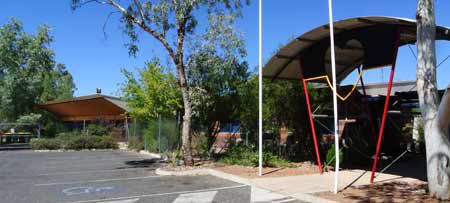Mandatory alcohol treatment may be illegal: academics
6 July 2015
 By ERWIN CHLANDA
By ERWIN CHLANDA
The Territory’s Alcohol Mandatory Treatment Act, which permits mandatory residential alcohol rehabilitation for up to three months, has little evidence to justify it, is not cost-effective, and may discriminate against Aboriginal and Torres Strait Islander peoples, according to the authors of an article published in the Medical Journal of Australia.
Dr Fiona Lander from the Harvard T. H. Chan School of Public Health in Boston, USA, and Professor Dennis Gray, a frequent visitor to Alice Springs, and Associate Professor Edward Wilkes from the National Drug Research Institute at Perth’s Curtin University, say international guidelines and human rights law confirm that mandatory rehabilitation should only be used for short periods.
“Evidence concerning the efficacy of long-term mandatory alcohol rehabilitation is lacking, and minimal data concerning the efficacy of the scheme have been released,” says the article.
“The program only permits referral by police, despite the fact that it is ostensibly a medical intervention. Use of a treatment as a method of effectively solving a public intoxication problem is highly dubious, and should be of concern to the medical community.
“Given that more cost-effective and proven measures exist to combat alcohol dependence, the utility of the AMT Act is questionable.”
In a media statement released today the authors say the NT has per capita alcohol consumption levels about 50% higher than the Australian average, and alcohol-attributable deaths at 3.5 times the national rate.
 “The NT Government could adopt more cost-effective alternatives. The AMT program costs around $27 million annually, says the article.
“The NT Government could adopt more cost-effective alternatives. The AMT program costs around $27 million annually, says the article.
“Although some changes had been made to the AMT Act since its introduction — notably that criminal sanctions for absconding from treatment had been removed.
“It is disturbing that the scheme targets chronic drinkers who are publicly intoxicated and not all problem drinkers.
“Homeless or itinerant individuals are much more likely to fall foul of the scheme.
“Homelessness rates among Indigenous Australians are up to four times higher than those of non-Indigenous Australians, and the practice among them living rough has been well documented.
“When read together with research confirming high rates of alcohol usage among homeless and itinerant Aboriginal people, it is unsurprising they are more likely to be referred through the scheme than non-Aboriginal citizens.”
The authors say there were more cost-effective methods of reducing alcohol misuse in the NT, such as restrictions on alcohol pricing and hours and days of sale for licensed premises, and capacity-building among primary health care organisations to manage alcohol dependence.
“Implementation of any or all of these interventions using the significant funding allocated to the AMT scheme could see enormous benefits flow to the NT population more broadly, rather than providing for the temporary and likely ineffective compulsory treatment of a small number of people.”
PHOTOS: The Central Australian Aboriginal Alcohol Programs Unit in Alice Springs is part of the mandatory treatment system.



Yes OK. We give them the right to drink and are we to now not to do something about the results?
Ask the relations of the drunks about it, you know, the real people, not the academics. I am sure the country is run by idiots.
Once again “academics” from other places are telling us how to run our Territory.
Over the decades we’ve tried everything and mandatory rehabilitation is another trial to see if it works.
There are sufficient experts in the Northern Territory to deal with our issues, we don’t need outsiders sticking their noses in.
$27,000,000 a year is a lot. How many people go through in a year? One would hope the government is prepared to look at the research and make sure we are getting a good bang for our bucks.
Re Robinoz: “How to run our Territory” and “outsiders sticking their noses in”.
Sounds like you need to get out a bit and see the world.
Let’s guess, you’re a local who has made a poor lifestyle choice and are now trying to justify it.
Congratulations on the correct usage of “their”. Most impressive.